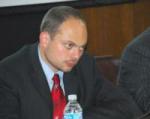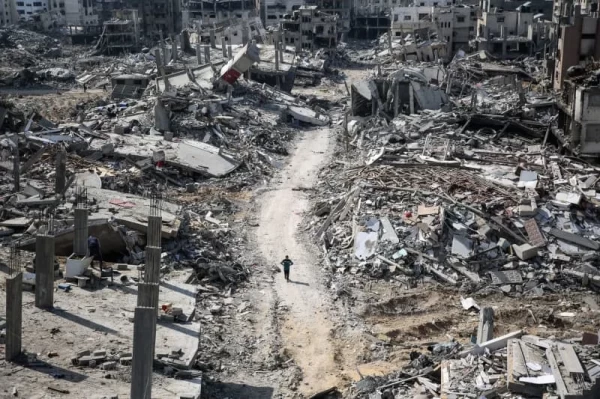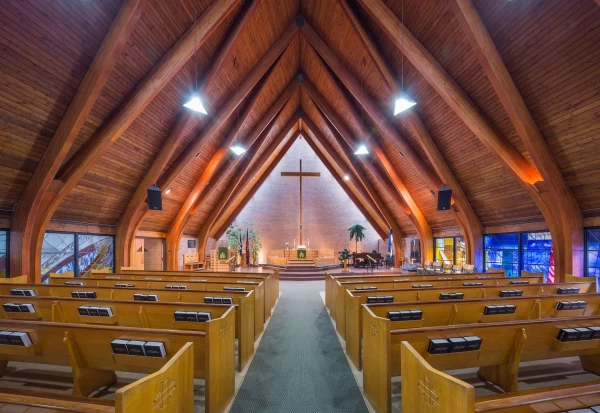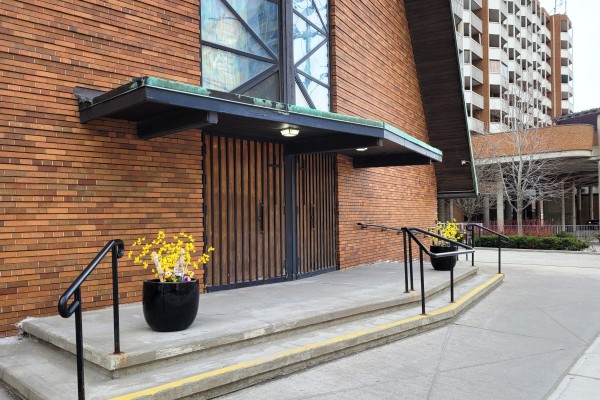
Last week, the French mission to the Council of Europe hosted an unusual meeting between a head of state and a prisoner he helped set free. French President Emmanuel Macron, who holds the rotating chairmanship in the Council, Europe’s oldest pan-continental body dedicated to defending human rights, met with Oleg Sentsov, a filmmaker from Crimea who was arrested by the Russian authorities after the annexation of the peninsula in 2014. A military court in the Russian city of Rostov-on-Don handed Sentsov a 20-year prison sentence on bogus charges of “terrorism.” Recognized by Amnesty International as a prisoner of conscience, Sentsov — who held a 145-day hunger strike demanding the release of other Ukrainian hostages (but not himself) — became a cause célèbre, receiving prestigious awards and becoming the focus of advocacy by prominent public, cultural and political figures throughout the world.
Among the heads of state and government, Macron — even as he sought rapprochement with Moscow in other areas — became Sentsov’s most outspoken advocate, personally raising the Ukrainian’s case with Kremlin leader Vladimir Putin on several occasions. This commitment, no doubt, helped bring forward the day Sentsov was freed as part of last month’s prisoner exchange between Russia and Ukraine. “[Sentsov] is here today in Strasbourg, free. . . . Others are still waiting,” Macron told the Council of Europe’s Parliamentary Assembly at its autumn session. “Oleg Sentsov is one of those who think, like [French writer Georges] Bernanos, that the liberty of others is as important as our own.”
Indeed, others are still waiting. According to Memorial, Russia’s most respected human rights group, there are currently 308 political prisoners in the country. The number is admittedly conservative, as it only includes those who fit the strict criteria in the Council of Europe’s Resolution 1900 — but even this figure is shocking for a country that has ratified the European Convention on Human Rights, which expressly prohibits arbitrary arrest and detention.
Among the Kremlin’s political prisoners are journalists, opposition activists, peaceful protesters, adherents of “prohibited” religious groups (such as Jehovah’s Witnesses), and members of “undesirable” political organizations (such as Open Russia.) They include Yuri Dmitriev, a historian who has documented mass burial sites from Stalin-era executions; Alexei Pichugin, the remaining hostage of the “Yukos Affair” now in the 17th year of his sentence for refusing to give false testimony against his former superiors; and Anastasia Shevchenko, a single mother and opposition activist who became the first target of the law against “undesirable organizations.”
The list has swelled in the last few weeks, as the summer protests over the removal of opposition candidates from Moscow’s legislative elections brought harsh prison sentences for several participants. One of them, Konstantin Kotov, was sentenced to four years in prison for “repeated violations” of the law against public demonstrations; the “violations” included a one-man picket and a Facebook post. Another protester, Kirill Zhukov, received a three-year sentence for trying to lift a visor on a policeman’s helmet.
Zhukov’s sentencing inspired a strange comment by Alexei Kondratiev, a Russian delegate to the Parliamentary Assembly of the Council of Europe: “Today he extended his hand; tomorrow he may throw a Molotov cocktail!” Kondratiev, who made his remark during a debate called by the assembly’s Liberal group, placed his fellow Russians in the unenviable position of having to defend the Kremlin’s brutal crackdown on peaceful demonstrators — which Swedish lawmaker Boriana Aberg called “unacceptable” for a Council of Europe member state — before Europe’s largest parliamentary forum. Struggling for arguments, Kremlin envoys retorted to customary claims of “foreign interference.” Leonid Slutsky, the chairman of the Russian parliament’s international affairs committee, blamed the protests on the U.S. State Department and, for some bizarre reason, on the German public broadcaster Deutsche Welle.
Political change in Russia is a matter for Russian citizens — and those who are braving police batons and criminal sentences to defy Putin’s regime by demonstrating in the streets are making that prospect more tangible. But holding the Kremlin accountable for violating its international commitments (including with the incarceration of political prisoners) is an obligation for the world’s democracies. Even in the seeming hopelessness of the Soviet era, sustained advocacy by Western leaders — among them U.S. presidents of both parties — helped secure the release of some of the most prominent prisoners of conscience, including Vladimir Bukovsky, Anatoly Sharansky and Yuri Orlov. More recently, under Putin, international interventions helped bring freedom for Mikhail Khodorkovsky and, now, Sentsov.
As Macron told European lawmakers, “others are still waiting.” It is up to those fortunate to live in democratic societies to fight for their release. As a bipartisan group of U.S. senators wrote last week, the free world must send a message that it “stands with those whose rights and basic freedoms are being unjustly repressed.”



























